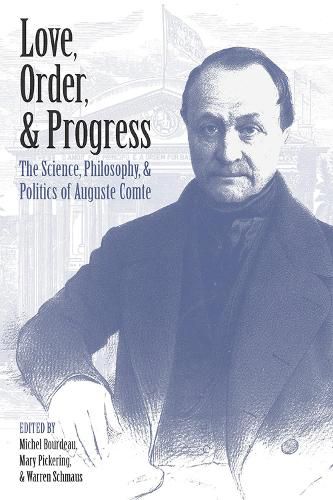Readings Newsletter
Become a Readings Member to make your shopping experience even easier.
Sign in or sign up for free!
You’re not far away from qualifying for FREE standard shipping within Australia
You’ve qualified for FREE standard shipping within Australia
The cart is loading…






Auguste Comte’s doctrine of positivism was both a philosophy of science and a political philosophy designed to organize a new, secular, stable society based on positive, or scientific, ideas, rather than the theological dogmas and metaphysical speculations associated with the ancien regime. This volume offers the most comprehensive English-language overview of Auguste Comte’s philosophy, the relation of his work to the sciences of his day, and the extensive, continuing impact of his thinking on philosophy and especially secular political movements in Europe, Latin America, and Asia. Contributors consider Comte’s reasons for establishing a Religion of Humanity, as well as his views on domestic life and the arts in his positivist utopia. The volume further details Comte’s attempt to apply his positive method, first to social science and then to politics and morality, thereby defending the continuity of his career while also critically examining the limits of his approach.
$9.00 standard shipping within Australia
FREE standard shipping within Australia for orders over $100.00
Express & International shipping calculated at checkout
Auguste Comte’s doctrine of positivism was both a philosophy of science and a political philosophy designed to organize a new, secular, stable society based on positive, or scientific, ideas, rather than the theological dogmas and metaphysical speculations associated with the ancien regime. This volume offers the most comprehensive English-language overview of Auguste Comte’s philosophy, the relation of his work to the sciences of his day, and the extensive, continuing impact of his thinking on philosophy and especially secular political movements in Europe, Latin America, and Asia. Contributors consider Comte’s reasons for establishing a Religion of Humanity, as well as his views on domestic life and the arts in his positivist utopia. The volume further details Comte’s attempt to apply his positive method, first to social science and then to politics and morality, thereby defending the continuity of his career while also critically examining the limits of his approach.